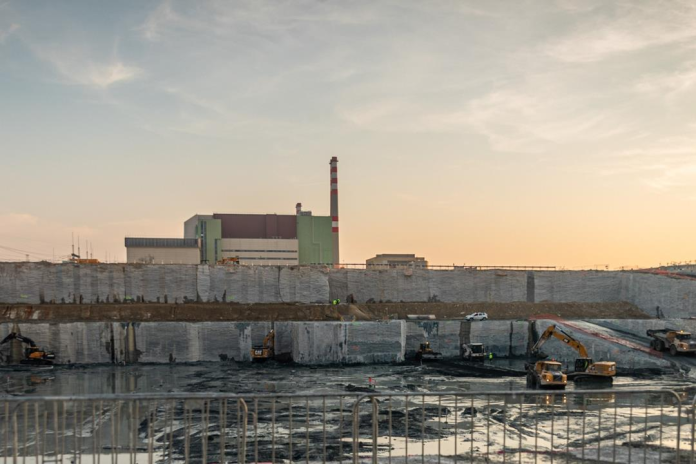Hungary’s National Atomic Energy Authority (OAH) ordered a partial halt to construction at the Paks II nuclear power plant after sections of the southern excavation wall collapsed, according to bne IntelliNews.
The collapse caused a vertical displacement of more than seven metres at the power plant’s future fifth unit. The nuclear service intends to launch an investigation.
The expansion of Hungary’s only NPP has been a contentious issue from the start. The country selected Rosatom without a public tender based on a 2014 intergovernmental agreement to build two VVER-1200 reactors, each with a capacity of 1,200 MW, making it the largest nuclear project in the EU with a construction permit.
The project faced significant delays due to regulatory inspections, safety assessments and European Commission investigations, pushing back the original start date from 2017. As a result, the new units may not be operational until the 2030s at the earliest.
OAH issued the final licence for the project at the end of 2024, two and a half years after the issuance of the conditional permit. The preparatory phase of the project, including earthworks and site preparation, began in 2021, with the first concrete pour for the new reactors scheduled for early 2025.
The project also faces significant financial challenges due to potential cost overruns. The 2014 agreement set a budget of €12.5bn, which is mainly financed by a €10bn Russian loan.
However, the government recently submitted an amendment to parliament that would allow Paks II to renegotiate its contract with Rosatom, potentially increasing the overall project budget.
